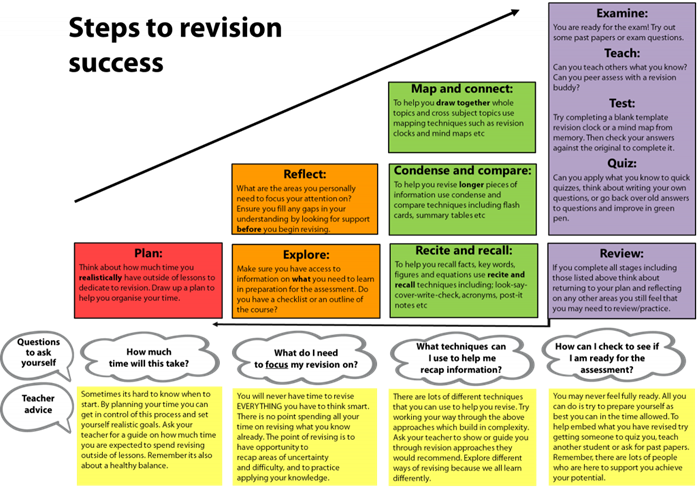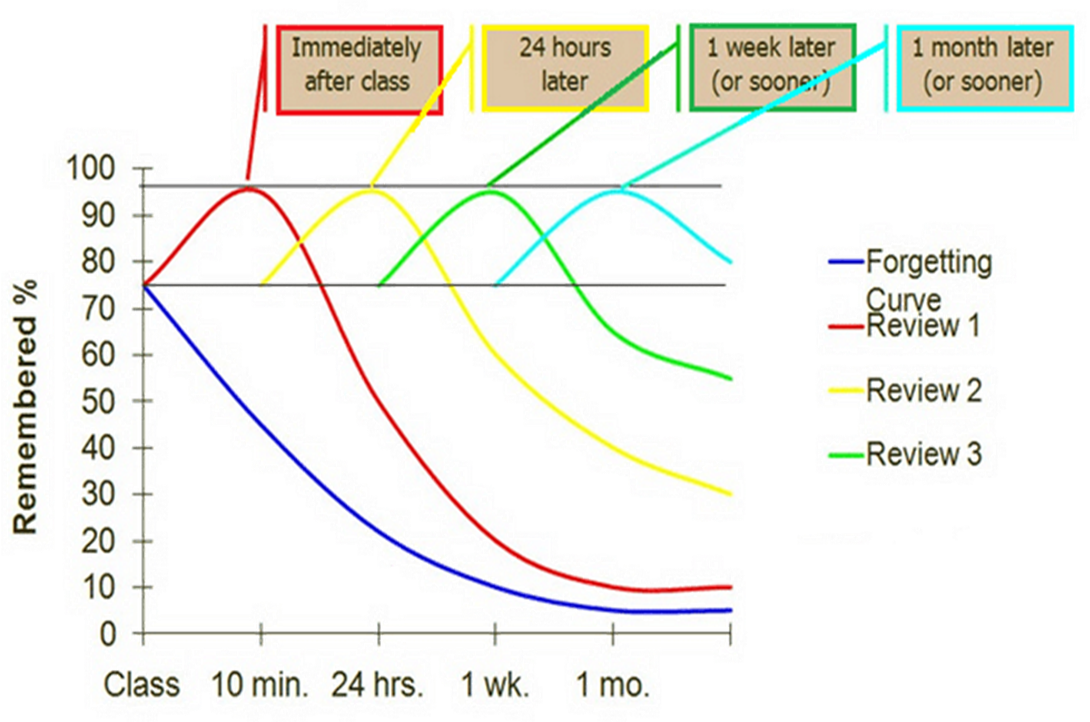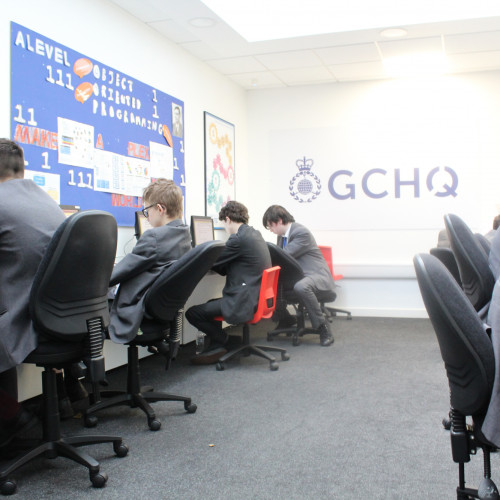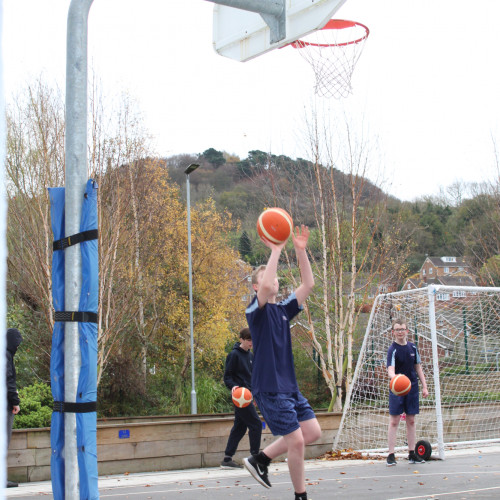Remote Learning & Revision
We recognise that exams are a stressful but very important time. We are really proud of the support we put in place to enable all our students to be successful in their exams and we are proud of the efforts the young people in Key Stage 4 and 5 make every single year.
“Failing to plan is planning to fail”
Allen Lakein
In simple terms students need to:
- Plan their time and make a clear revision timetable
- Identify a suitable place to work and revise – this might be at home or it might be in school
- Identify areas of focus for revision and ensure they are clear on exactly what they need to know
- Plan how they will revise and the strategies that work best for them
- Make sure they build time for rest into their exam planners and revision timetable
Revision Planning
Our ‘Steps to Revision’ set out the key processes you need to go through to successfully plan and implement your revision schedule. Throughout Year 9, 10 and Year 11, you will do work on each of the steps here to ensure you are confident with structuring and planning your revision time.

Planning time
We ensure that all Year 11 students have the tools they need to succeed with revision through our Year 11 revision skills day, ‘walking, talking mocks’ and our weekly exam preparation sessions that are built into the Year 11 tutor programme. Useful advice includes:
- When creating a revision timetable the key is to be honest and realistic. Build in time to rest, in addition to mapping out the time that will be spent on subject content.
- Start early. Revision is reinforcing existing knowledge, not learning anything new.
- Throughout your time at develop good habits – meet your homework deadlines and spend 10-15 minutes each week recapping any content that you find difficult
- Plan from your exams and work backwards, build in birthdays etc. Be realistic.
- Somewhere to work – ensure that you have a quiet, calm place to work. If you struggle with this at home, see your tutor for help and support.
- Everyone needs a flat surface. Beds just do not work!
- Good lighting. You need to be able to see!
- Start early- all homework needs to be completed in these conditions. Get into best routines.
Plan how you will learn
Key to remembering is returning to information regularly. This ‘little and often’ approach has been proven to be the most effective way to retain content over the long term.

- 66% material is forgotten after 7 days
- 88% material is forgotten after 6 weeks
- Reading notes and text books leads to a mere 10% retention
Each time knowledge is reinforced; it enters deeper into the long-term memory and becomes more stable.
Research shows:
- It is not enough to simply read through notes.
- It is not enough to highlight texts and revision notes.
- Writing summaries of information is pretty much pointless, unless you do this in a way that makes you think!
- Copying out information is not usually an effective revision technique
- Students often resort to these methods for two reasons:
- They are easy! They don’t require much brain power. This is why they don’t work well to improve memory.
- They make students feel like they are doing a lot of work, when in actual fact they are not.
- Instead, focus your revision on techniques that really make you think about what you are trying to learn
Some effective techniques:
- When making mind maps or revision clocks, do these first without notes, then add details you missed using your notes, in a different colour. This works because you are forcing yourself to think hard and retrieve information from your memory – not just copy it out!
- Flash cards – these are a great technique for learning key facts. Make flashcards of key information (not too much, about 5-6 bullet points) and put questions on the back. You can then use these to test yourself, or get someone to test you.
- Ask for practice exams from teachers. You can also often find practice exams online too – you just need to make sure they are for the right exam specification
- Teaching someone else – try to challenge yourself to teach give key points to your parents after each 20 minutes of revision you do
Useful websites and links
https://www.bbc.co.uk/bitesize/articles/zw8qpbk
https://www.bbc.co.uk/bitesize/articles/z73kdp3
https://www.bbc.co.uk/bitesize/articles/z83cqhv
https://www.sussex.ac.uk/skillshub/?id=296
https://www.cgpbooks.co.uk/info/exams-or-demon-fighting/essential-revision-tips
https://www.youtube.com/watch?v=0R4jPwsz8l4
Revision and learning tools - click on the links to download the documents
Remote education provision: information for parents
This information is intended to provide clarity and transparency to students and parents or carers about what to expect from remote education if local restrictions require entire cohorts (or bubbles) to remain at home.
For details of what to expect where individual students are self-isolating, please see the final section of this page.
The remote curriculum: what is taught to students at home
A student’s first day or two of being educated remotely might look different from our standard approach, while we take all necessary actions to prepare for a longer period of remote teaching.
What should my child expect from immediate remote education in the first day or two of students being sent home?
- Access to Google Classrooms within all subjects.
- Through the Google Classroom, access to all lesson instructions, tasks and resources, in addition to communication with the teacher via the Google Classroom Stream.
Following the first few days of remote education, will my child be taught broadly the same curriculum as they would if they were in school?
- We teach the same curriculum remotely as we do in school wherever possible and appropriate. However, we have needed to make some adaptations in some subjects. For example, where it is not possible for students to undertake practical activities in Engineering and Science lessons.
Remote teaching and study time each day
How long can I expect work set by the school to take my child each day?
We expect that remote education (including remote teaching and independent work) will take students broadly the following number of hours each day:
KS4 – Y9, Y10 & Y11 – 6 hours
KS5 – Y12 & Y13 – 8 hours
Accessing remote education
How will my child access any online remote education you are providing?
All tasks and assignments will be set by teachers for students using the Google Classroom platform. Live lessons will be delivered using the Google Meet platform. The arrangements for any ‘live’ classes, e.g. webinars, will be communicated via email no later than one day before the allotted time and kept to a reasonable length of no more than one hour per session.
If my child does not have digital or online access at home, how will you support them to access remote education?
We recognise that some students may not have suitable online access at home. We take the following approaches to support those students to access remote education:
- The college will review the resources students have access to and adapt learning to account for all student needs by using a range of different formats, e.g. providing work on PDFs which can easily be printed from a mobile device.
- Provision of tablets by request, available for collection from college reception by arrangement.
How will my child be taught remotely?
We use a combination of the following approaches to teach students remotely:
- Online platforms such as Dr Frost and Seneca
- Work booklets
- Past and mock exam papers
- Current online learning portals
- Educational websites
- Reading tasks
- Live lessons
- Pre-recorded video or audio lessons
Engagement and feedback
What are your expectations for my child’s engagement and the support that we as parents and carers should provide at home?
Initially, all students must ‘attend’ lessons as per their usual college timetable. Parents and carers should ensure that students are completing all set tasks on the Google Classroom during their allocated lesson time, or that they are attending live lessons.
If a longer period of remote learning is necessary timetables may be adapted to support live lesson delivery. Students will be expected to attend all live lessons with attendance monitored during the session.
How will you check whether my child is engaging with their work and how will I be informed if there are concerns?
Initially, teachers will monitor student engagement to sessions; attendance and work completion concerns will be communicated to parents/carers regularly via telephone call and/or email by the Pastoral team. If a longer period of remote learning is necessary parents/carers will be contacted immediately via telephone call if a student is not attending a live lesson to encourage that attendance. Work completion concerns will be collated from individual teachers and contact made to parents/carers via email by the Pastoral team.
How will you assess my child’s work and progress?
Feedback can take many forms and may not always mean extensive written comments for individual children. For example, whole-class feedback or quizzes marked automatically via digital platforms are also valid and effective methods, amongst many others. The college employs a variety of formative assessment and feedback methods, e.g. through quizzes and other digital tools from teachers, and will support them with implementing these measures for remote learning where possible.
Additional support for students with particular needs
How will you work with me to help my child who needs additional support from adults at home to access remote education?
We recognise that some students, for example some students with special educational needs and disabilities (SEND), may not be able to access remote education without support from adults at home. We acknowledge the difficulties this may place on families, and we will work with parents and carers to support those students in the following ways:
- Teaching staff will liaise with the SENCO and other relevant members of staff to ensure all students remain fully supported for the duration of the remote learning period.
- The SENCO will arrange additional support for students with SEND which will be unique to the individual’s needs, e.g. via weekly phone calls.
- The DSL will arrange for regular contact with vulnerable students once per week at minimum, with additional contact, including home visits, arranged where required.




















